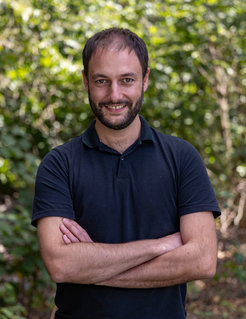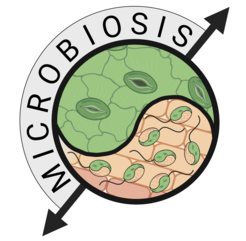MPIPZ researcher awarded highly competitive European research grant

Stéphane Hacquard from the Department of Plant Microbe Interactions has been awarded a highly prestigious and competitive European Research Council (ERC) Consolidator Grant. This funding scheme, which had a success rate of below 12% in 2021, allows researchers to consolidate their independence by continuing to develop a successful research career in Europe.
Hacquard’s Multitrophic Plant-Microbe Interactions group at the Max Planck Institute for Plant Breeding Research aims at understanding the mechanisms that govern the structure and functions of the microbial groups colonizing plant roots.

In the project now funded by the ERC, called MICROBIOSIS, Stéphane Hacquard and his team will examine the fascinating, yet overlooked circuits that connect root microbiota composition belowground with aboveground leaf development. In this way, the project aims at finding belowground microbial solutions to solve aboveground plant problems.
In recent years, scientists have uncovered a critical role for the gut microbiota-brain axis in modulating brain functions in animals. Reminiscent of this signaling route, the microbiota-root-shoot axis is expected to have broad physiological relevance for promoting stress tolerance in plants. Thus, through long-distance signaling, microbes living on belowground parts of plants are expected to enhance resistance to leaf pathogens, to modulate aboveground microbiota assembly and to influence decision making in plants.
In MICROBIOSIS, Hacquard and his team want to identify conserved strategies used by distantly related plant species for long-distance communication with root microbes and to design synthetic microbial communities that promote resistance to multiple aboveground stresses. To achieve these goals, they will use tractable microbial communities, cutting-edge metabolome, microbiome and grafting techniques, as well as advanced plant growth systems that allow them to precisely control the presence or absence of microbes.
“We hope that this work will lead to the identification of multiple points of control by which microbiota-root-shoot circuits can be engineered or manipulated in order to boost plant growth, defense, or both, in response to diverse environmental stresses”, says Hacquard.













